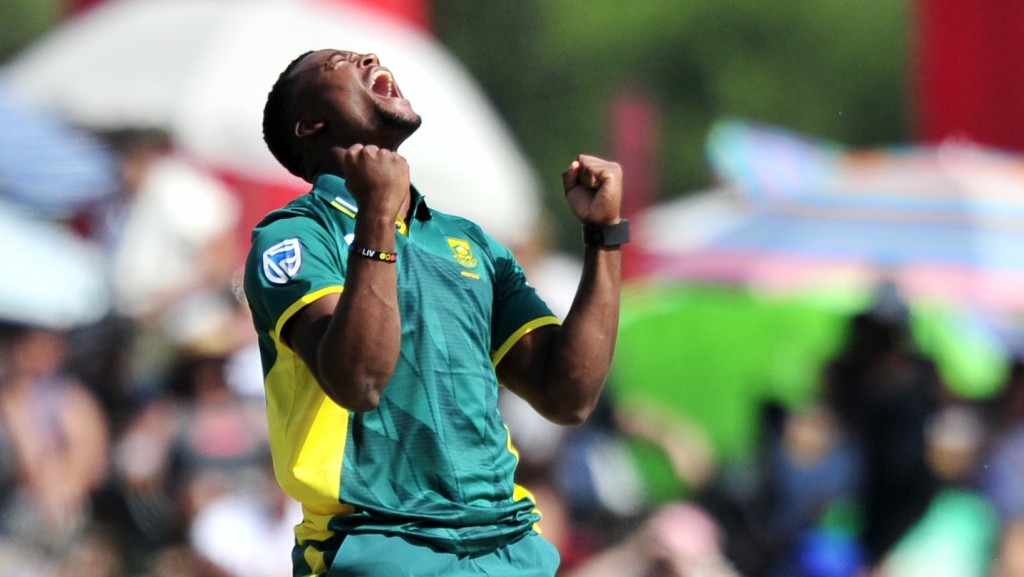Andile Phehlukwayo has emerged from the ODI series against Australia not only as a history-maker, but as a beacon of hope.
There are times when players seize the moment, and for black players at this time it is especially important to impress and dispel any wanton talk of transformation, targets and quotas. To emerge as a player of note in his own right is the only way to dismiss such idle speculation.
Phehlukwayo has done that and stands out as a true role-model, for here is a man who has not had things easy and has deservedly earned his place through natural talent and hard work.
True, he was given a break when he was sponsored by his mother’s employers to go to primary school in Margate, but it was his natural talent that earned him a bursary to Glenwood, 130 km away from home, and it was his determination that enabled him to overcome the separation and tough times he endured.
Phehlukwayo may carry the name ‘Lucky’, but it was natural talent which propelled him, aged 17, into the South African U19 team alongside Kagiso Rabada, and it was his determination that helped him overcome the disappointment of being largely ignored in the U19 World Cup, where he played just one match.
He saw it as a positive, saying: ‘I learnt a lot off field, about team dynamics and contributing to the team even when you are not playing.’
The engaging 20-year-old’s career has followed the tried and tested path, from franchise to South Africa A to the national team, and at each stage he has proved himself. There can be no discussion of his merits. It is one of the sad realities of South Africa that so little attention is paid to franchise cricket, or even the fortunes of South Africa A, but I hope the recent ODI series was a revelation to anyone interested in the game and the progress of the national side.
To take 4-44 first up against Australia (and let’s not hear any talk of ‘a depleted side’: they still had Smith, Warner, Finch, Bailey, Marsh) and seven in his first three matches against them show that here is a man of enormous potential. Even the battering he took in the second ODI (actually, he doesn’t come cheap at the moment with an economy rate of just over six, and a strike-rate of 32), should be seen as a positive in the learning curve. And he can bat.
This is just the start. I sincerely hope he gets the backing and support he needs so that one day we could see Phehlukwayo and Rabada bowling in tandem in a Test match. That would do more for cricket than any quota.
Phehlukwayo has simple ambitions. He said in a recent interview that he wants ‘to do well for his country’, and to be successful enough to give his mother a better life. You can’t ask more of any role model.
Photo: Ryan Wilkisky/BackpagePix







